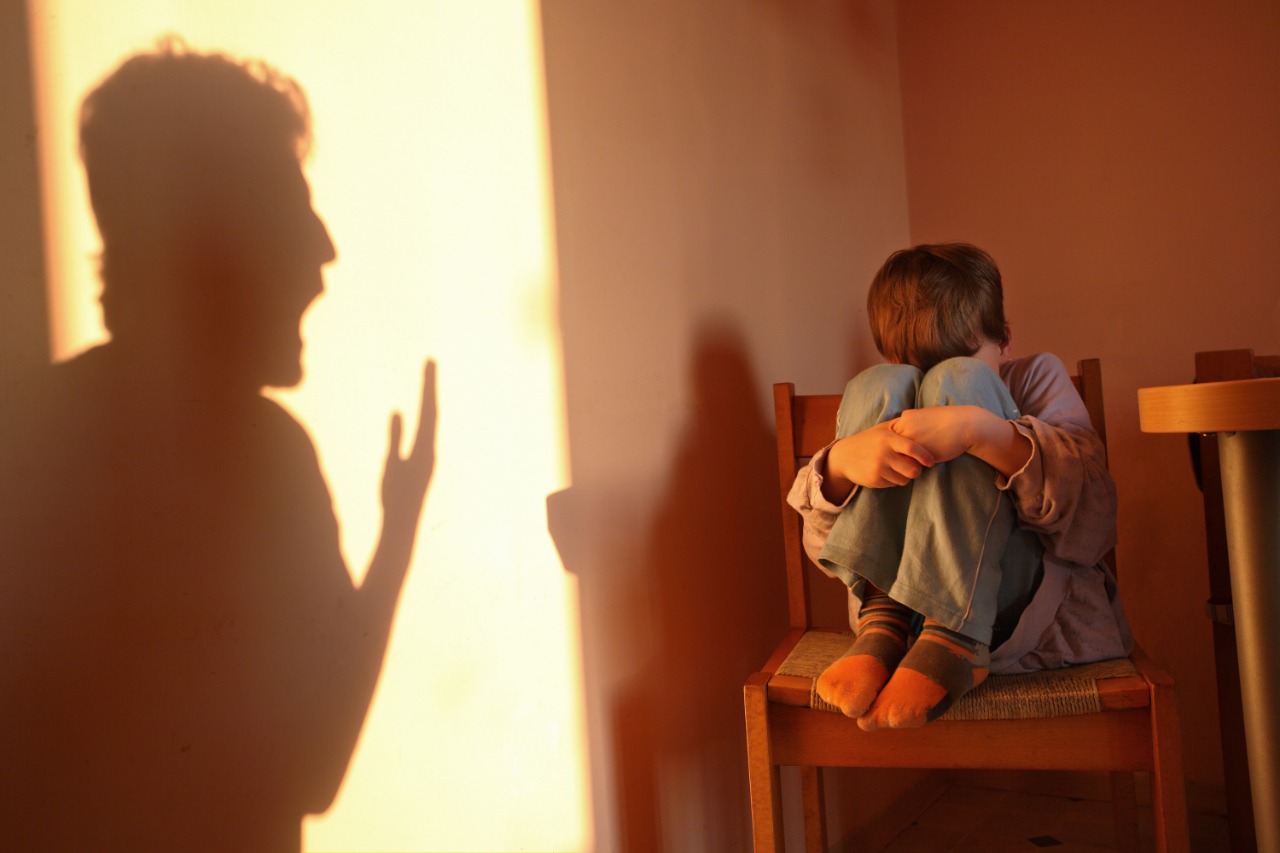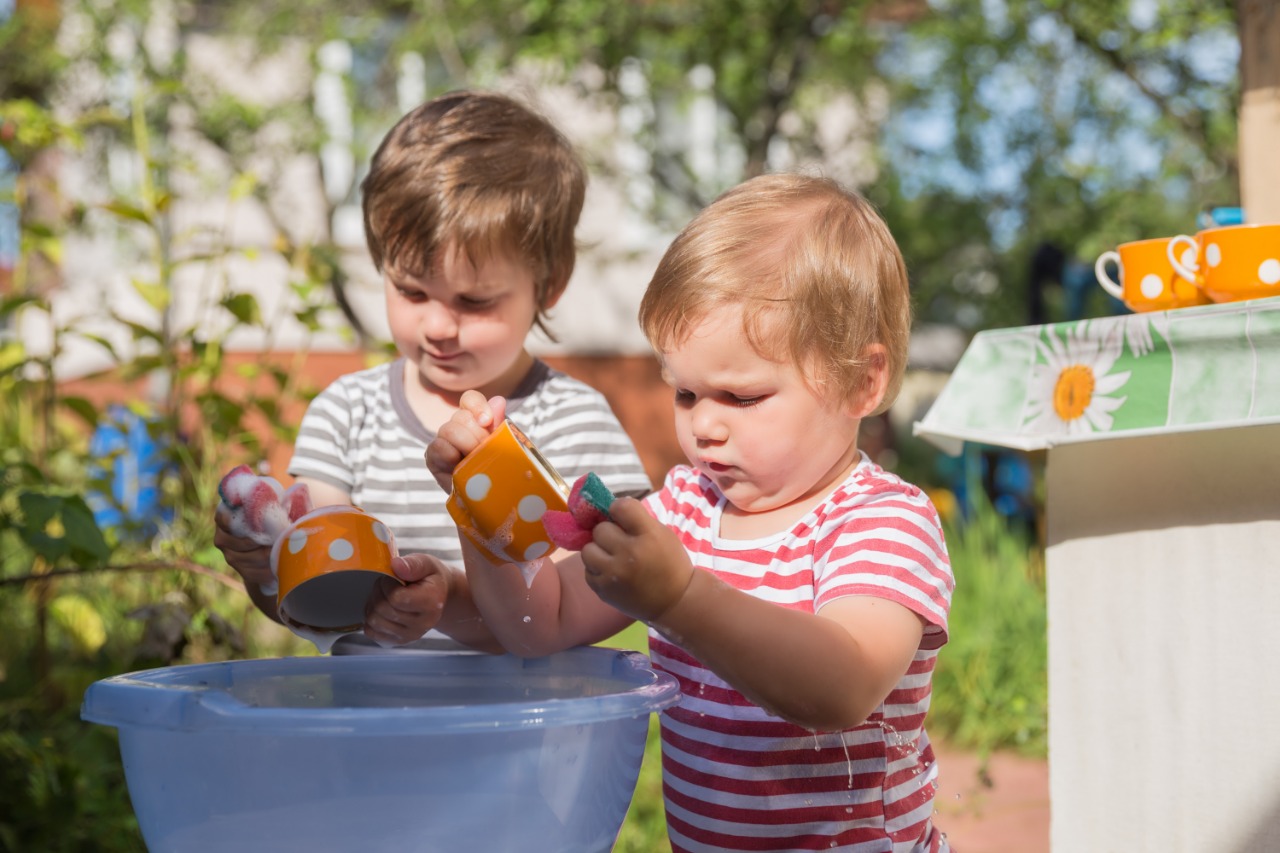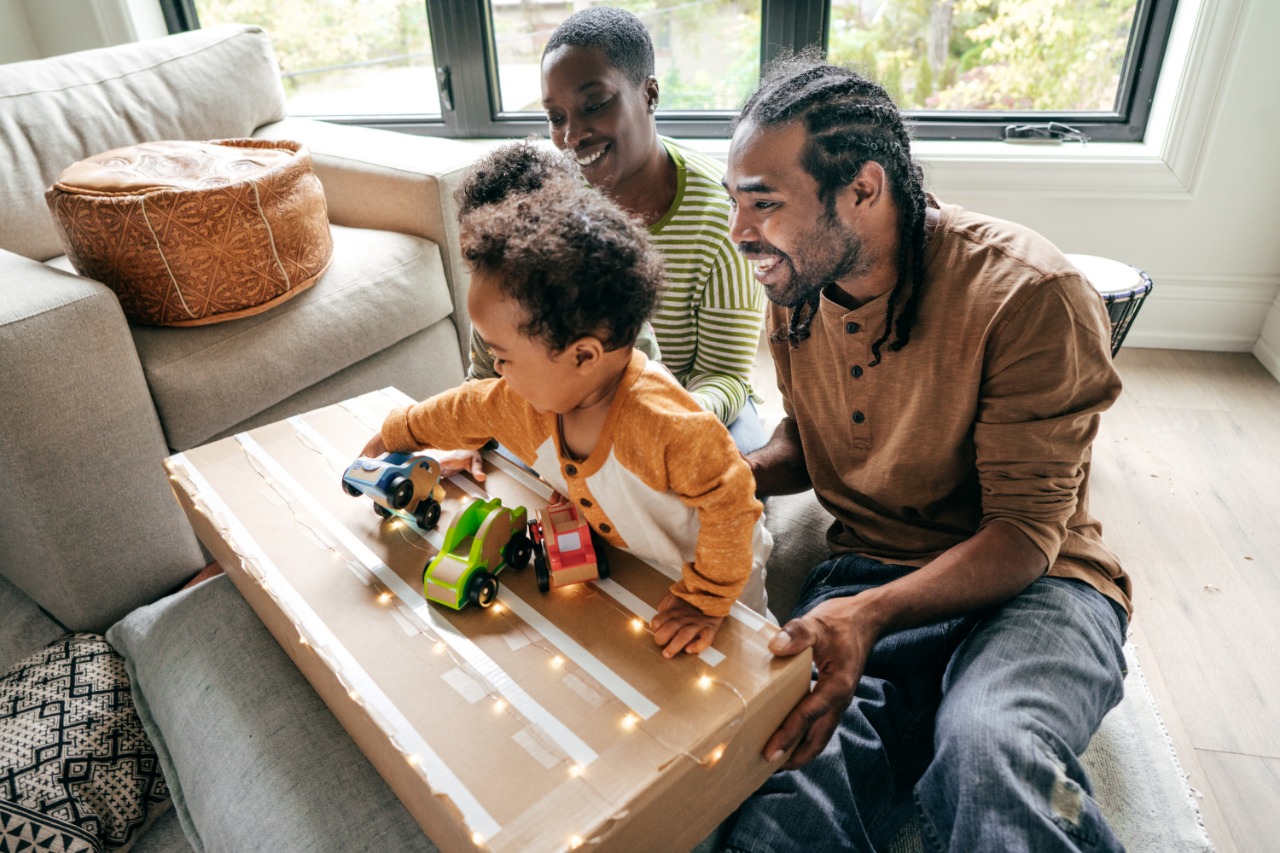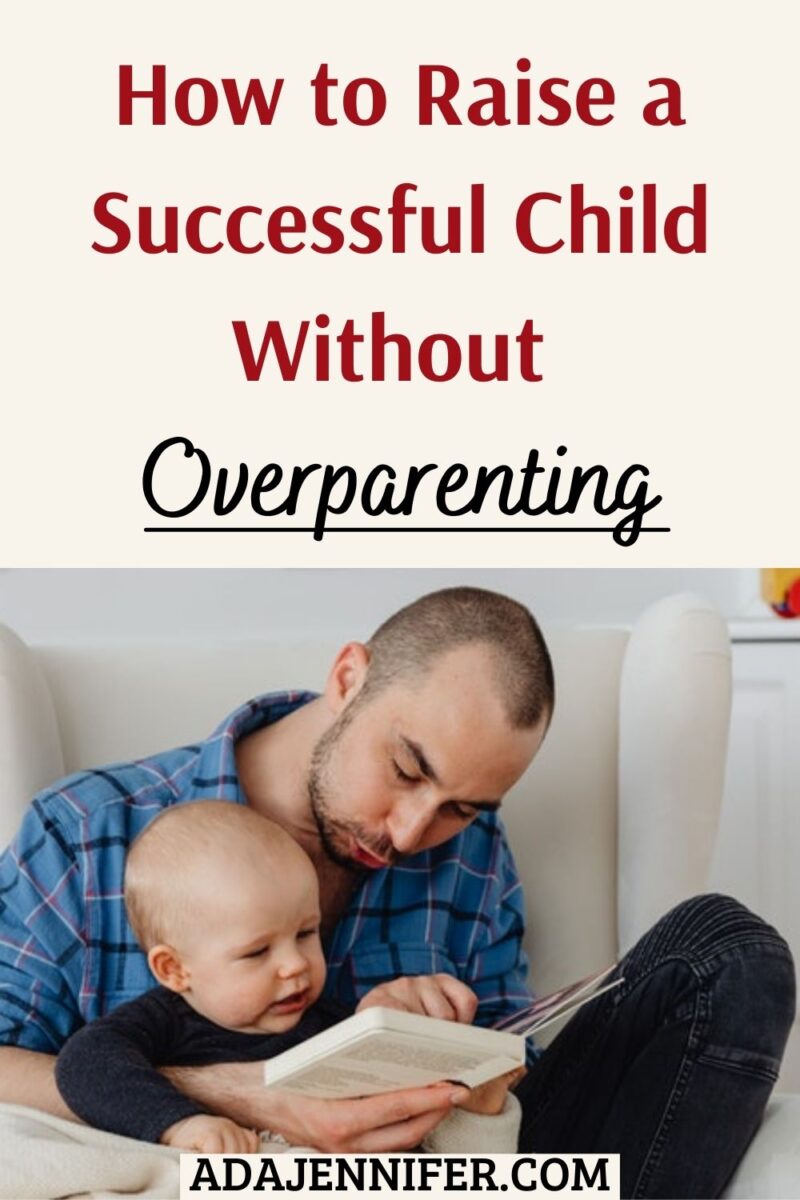How To Raise Children Without Overparenting

Have you ever wondered how to raise children without overparenting? If you have, you are not alone. Parenting is quite a scary rollercoaster ride— if you worry a lot, you will miss the fun. On the other hand, if you worry too little, you might jump off the highest cabin.
Parents spend more time worrying about raising their kids correctly than actually spending time with them. As confused moms and dads, we never know what comes between over- and under-parenting. We go a little overboard and would be called helicopter parents, and if we lay back a little— we’ll turn into horrible parents.
Are you also constantly worrying about practicing over-parenting? This article will discuss how to not go overboard while raising a kid and let them have the freedom they deserve.
So, how to raise children without overparenting, and does that mean you cannot show love and care for your kids? Well, no! Then, how to not be over-involved and still avoid over-parenting? Before learning what over-parenting actually is, one should understand what raising a child or parenting means?
Parenting is not as easy as riding a bicycle, so don’t underestimate it. On the other hand, it is not as rigorous as rocket science, so don’t be afraid of it.
In a straightforward term, raising a child or child-rearing doesn’t only mean fulfilling their basic/expensive necessities but a lot more than that. A good child-rearing is a process that tends to their emotional, psychological, and physical needs— starting from juvenility to adulthood.
A child grown with love, positivity, and emotional health will reciprocate love,
- make their own intelligent decisions,
- Build confidence
- Raise voice in the crowd
Parenting Across Different Countries
How to raise a good child is a debatable topic.’ Parenthood is not a science experiment that has to be followed with precise rules; in fact, it’s art with different concepts. Every country and culture has unique fundamentals on how to raise a child. Here are some that amaze and motivate me as a parent:

- Drink with parents: In Italy, children (16 years old) drink wine while having dinner with their parents. It’s true, and this promotes less harmful drinking addiction in this region among citizens. Similarly, In Korea, it’s pretty normal for children (after reaching a drinking age-20) to drink Soju with parents/adults.
- Hang out alone when you turn 6: In Japan, a child aged six or above can roam around outside with a bit of supervision. They can go to school alone and explore things on their own. According to research, this helps them build a good intellect and other world knowledge within.
- Values and spirituality to newborns: Indians believe that a child starts acquiring knowledge when they are in their mother’s womb. Therefore, adults usually suggest having a good thought and meal during pregnancy. Also, at a very young age, different communities of India take their kids to mosques and temples to teach them the values and religious philosophies.

- Parking Babies outside: Wait! What? Yep! Denmark is a nation where parents keep their juniors outside the restaurant or on the sidewalk (in their strollers) so that they can shop or enjoy a personal meal. NOO! They aren’t reckless, but it is simply an ordinary practice there.
- No schooling before 7: Finland also disapproves of teaching a child until they turn seven and still ranks as the most intelligent country globally (in education). They also believe in long holidays and less homework, which helps the child retain the knowledge very efficiently. You probably are thinking, damn! Why weren’t I born there?
The conceptions of upbringing a child are often backed by the country’s culture, geographical, and physiological systems and beliefs. However, that’s not all there is to parenting, right? It is not as easy as ABC, lmao!
The Bridge Between Over-Parenting & Under-Parenting

When I was in my early teens, I remember getting furious with my dad about little things. Like every dad and son/daughter, we rode bicycles together. He would support and push me ahead, and I would surf through the town.
One day, when he thought I was ready, he let go of the cycle without letting me know. I drove but soon fell over when I realized my papa wasn’t there to support me. I cried and cried, not just because of the scars and scratches but because my dad ditched me. He asked, “Why did you fall? You were doing so good! When did you start getting scared?”
To that, I replied, “The moment I realized you weren’t there to support me.”
“You were doing good all by yourself, I was barely touching the seat. In life, there would be times when I might not be there to support you. At times like these, trust in yourself, you don’t need any support at all, my hero.”
The experience got stuck in my head and helped me overcome my many fears. But still, sometimes, I do feel that he should teach me life lessons without so many hardships. I hardly remember any moment that felt like over-parenting. For all I know, it felt under-parenting. Parents need to understand and find the correct balance between the two.
- Over-parenting involves looming over your child’s decisions and stopping them from trying new things. Under-parenting means not taking any interest in your child’s decisions and unusual changes.
Solution: Instead, agree to their choices and guide them through it. For instance, explain the complicated math problem, but let them do it themselves. Correct and help them every time they make a mistake, but don’t do it yourself and snatch away that very experience from your kids.
- Over-parenting often mocks kids for not listening. However, parents must understand ‘no wisdom’ shall come without experience. Let your kids climb and fly, but don’t forget to be prepared to catch them when they fall.
- Under-parenting makes life difficult for kids— parents push their kids to fly without teaching them how to use their wings. Under-parenting often leads to depression and mental traumas in young adults/teenagers.
- Over-parenting is exhausting for kids. In free-range parenting, there’s a whole sky to fly.
What Is Overparenting?

You probably think that the term ‘over-parenting’ is a slight exaggeration and an over-hyped expression used by/for sentimental parents.
Well! I know for a fact, every parent wants to provide the best to their child without any hardships. But by being excessively involved and over-protective will lead to higher psychological disorders, lower self-esteem, unappeased life satisfaction, and other difficult consequences in the personality of a child. So stop hovering over your kids. “Hovering over?” Yeah!
Helicopter parenting is a term widely used by professionals for parents who are constantly “hovering overhead” on their child’s shoulders every passing minute. When parents exaggerate and overdo their involvement in a child’s decision-making and other actions, it clearly indicates overparenting.
Contrary to helicopter parenting, there is also a concept called Free-Range parenting— A complete opposite to the previously discussed theme. In this system, parents raise their kids with independence in decisions, learning, and overcoming obstacles.
Now, Free-range parenting doesn’t mean any less involvement. It actually helps frame and nourish a strong trust within the child for their decisions and endorses risk-taking and problem-solving abilities.
Now, let’s discuss how to avoid being an over-involving parent and the simple causes of overparenting.
How To Not Over-Parent Your Kids
Undoubtedly, over-parenting is a phenomenon done with the purest intentions for the well-being of your junior. But, carrying your kids around won’t teach them how to fly— it will only add weight and burden to them. Here are some great ideas to raise a successful child without being nagging or over-protective:
- Lend them some powers: Every parent wants their kids to never get hurt; this thought process makes them interfere with their kid’s every action. Instead, let them learn from their mistakes and falls.
‘Trying’ will add an experience to their future actions and will also strengthen their personality to withstand the upcoming inconveniences.

- Admire Individuality: Every person is different and remarkable in this world. But, imposing and controlling things on the child can disturb their subliminal system. Admiring the viewpoints and intention of a child’s beliefs boosts their creativeness and thought process.
- Appreciate their help: It is precious to comprehend the service your kids serve. Appreciating their efforts stimulates generous traits in your kids for a long time and makes them very pragmatic and sensible people. It also carves a habit of helping others.
- Have family time: When busy with office or household work, adults usually engage their children with toys and otherworldly possessions. Substituting time with gifts/presents will teach your kids to compensate for their mistakes with material goods. On the other hand, spending time with kids effectively helps build good bonds, relationships, and good communication skills.
- Stand for the actions: Parents who don’t apologize for their own mistakes and don’t accept their misconduct will guide a child on the same path of lies and excuses. Kids learn from your actions, and they will automatically build a habit of not accepting their mistakes. This trail might as well make them self-centered in adulthood.

- Do good deeds: Respect the people around you— how you treat others (strangers/animals) speaks a lot about your personality. Thus, being kind to others teaches your kids generosity, selflessness, and humility. Not only that, it helps them to do good deeds and teaches compassion.
- Don’t create a fence around: If we don’t let the kids explore their own world, it will make them intellectually unhealthy— This results in weak willpower and distressed behavior in difficult situations that await them ahead.
- Imposing to others: Being very peevish and sour to other people (like teachers or caretakers) around your child provokes the same behavior in your kids— they will mistreat their teachers to get away from mistakes and disrespect.
On the same hand, allow your kids to talk things out independently. Kids who are taught not to use their own voice and opinion become timid, shy, and introverted in public.
- Teach anger management: Coaching kids about anger issues is a valuable gift as it facilitates a behavior of calmness and doesn’t promote any fights or ugly debates. Kids who learn to control their nonsensical arrogance and temper tantrums choose better friends and better company.
- Let them find a solution: Helping kids with their homework is one thing and doing it all yourself is entirely another. Let your kid find a way or different ways to figure out things— This helps them be very stoic about the hurdles and hardships ahead of them.
- Support optimism: Fostering your child about the concept of optimism is a terrific way of compelling a happy kid. According to psychologists, looking at the positive scenarios and being optimistic lower the risk of depression and other issues in a child.
- Promote dinner together: Our grandparents often push us to eat together. As cliche as it might sound, many studies have shown that eating together builds a strong personality in a child.
It also reduces the chances of alcoholism or any other addiction. It may sound bewildering, but a kid grown without family love often gets depressed and mentally unstable. Furthermore, eating together stops parents from prying or over-parenting all the time.
- The power of saying “NO”: Every parent wants to provide the whole world to their child, but this practice often makes kids believe that everything is easy to achieve. Saying “No!” to their inconvenient wishes is essential.

- Let kids do their shopping: We, as adults, mostly buy clothes and wearables for our youngsters as they aren’t old enough to calculate the decency and quality of clothes and style. But, giving them a little power to discover things for themselves entirely helps them be independent and pushes them to try new things in all situations.
- Set the boundaries: Now, setting boundaries doesn’t mean holding back the real power of your child and not letting them try unique quirks.
It means putting some boundaries to make them more responsible. Structuring the daily routines— sleep time, playtime, etc., will help them restore a balance in their life. Setting boundaries doesn’t mean ceasing their fun; if they dearly wish to spend some quality time with the stars, the moon, let them. Boundaries shouldn’t limit their creativity and fun time.
- Give appreciation: Don’t only appreciate your child when they get an A grade. No, you should appreciate every effort they put forth. Too many high expectations and discouragement create an awful behavior of expecting higher from others.
- Promote Privacy: Kids are their own people, with their own lives and problems. Every person needs private time for themselves, especially a teen. As we evolve, we create bonds, ideologies and emotions. Thus giving them their personal time is essential.
- Push and pull: Giving privacy is necessary, but if your child’s obviously hiding something from and being suspicious about it— it’s time you confront them for the same.
Now, having secrets doesn’t mean you will barge in their privacy and not let them breathe. Instead, talk things out and have conversations more often. Don’t snatch their privacy away just because you think they might seem suspicious. There’s a huge difference between ‘giving privacy’ and ‘leaving your child in complete isolation.’
- Power of self-discipline: Continuous poking or nagging will soon make your child agitated and irritated from you— this might also lead to severe anger issues.
Instead, teaching kids self-discipline at an early stage will motivate them to have a proper balance in their life. Instead of forcing, let them know the pros and cons of certain situations— For instance, the power of cleaning rooms or their own dishes.

- Solicit them for chores: When kids perform their own tasks, they become independent and less needy. Again, don’t force it on your kids— but let them know that’s how adults and good people live. Doing chores or other work will make them think they are competent and responsible. Studies show that kids who learn to do their chores at an early age execute worthy goals in life.
- Prioritize their words: Don’t dismiss their thoughts because they are young. No, listen to them intently. Listening to a kid or an early teen with proper focus will give them confidence in their thoughts and feelings.

They will be confined with you and feel very comfortable sharing secrets/their crush/thoughts. Flexible communication will strengthen your bond with your child, communication skills, and voice in the crowd.
Inquiries infer that parents who talk and understand their kids perform better socially than those who get ignored.
- Don’t stop them from being monkeys: Overprotective parents majorly stop their kids from having fun at the park’s slides and swings to avoid injuries.

However, suppose your kids are old enough to have fun with scary swings. In that case, you shouldn’t stop them from having more extraordinary life experiences— these activities stimulate creativity, boost brain power, and help build a muscular physique.
- Tell “I Love You”: Parents mostly show extreme care and love through actions rather than words in overparenting. Sometimes, it’s better to say ‘I love You and take care’ instead of stopping your kids from going to the summer camp. Trust me; they will be safe and happier with all the adventure that awaits them.
Saying “I Love You” fosters them to fly simultaneously without breaking the trust and good boundaries between you and them.
- Resolving conflicts: Kids learn everything from their parents, it’s one of the most significant incentives for their personality. In helicopter parenting, parents mostly avoid fighting in front of kids.
Instead of bottling down your feelings, you and your partner should rightfully understand each other’s points and resolve the issues in your child’s presence. Your kids will learn to talk things out, apologize when needed, and forgive to move forward in life.
- Encourage them to try new things: We, as mature adults, might as well get scared or shy about starting new things even if it is impressive and under our potential. Do you know why? Because we fear changes, failure, and judgment. Don’t instill such a thought process in your kids. No, support and promote your kids to try new things out every day to build a powerful personality for them!
Energize the kids to perform new things even if it is weird— it adds cheerfulness and self-Ecstacy in kids.
Over-Parenting Quotes
“The more you nurture, water, and feed the tree— the taller, greener, and fuller it will become. It will stand tall during tsunamis and storms.”

Here are some great parenting quotes I narrowed down for you:
1. “Children have to be educated, but they have also to be left alone to educate themselves.” ― Ernest Dimnet. Let them explore themselves.
2. “Leave your pride, ego, and narcissism somewhere else. Reactions from those parts of you will reinforce your children’s most primitive fears.” ― Henry Cloud.
Don’t let them live with their fears. Instead, teach them to live fully and with the feeling of exploration.
3. “The way we talk to our children becomes their inner voice.”― Peggy O’Mara.
4. “Your children are not your children, they come through you, but they are life itself, wanting to express itself.” ― Wayne Dyer.
Everyone has their own sky to fly; let your kids find their own; maybe they will fly over the clouds. Who knows!
5. “Children have never been very good at listening to their elders, but they have never failed to imitate them.” ― James Baldwin. Try to act the way you want your kid to behave.
6. “The most important thing that parents can teach their children is how to get along without them.”― Frank A. Clark.
7. “Children require guidance and sympathy far more than instruction.”― Anne Sullivan.
If we try to penetrate morals through words in kids, it might hit them wrongly. Instead, show them how it’s done.
8. “We may not be able to prepare the future for our children, but we can at least prepare our children for the future.” ― Franklin D. Roosevelt.
Don’t just provide quality specs to your kids; you should also optimize their perceptions.
9. “The best way to make children good is to make them happy.” ― Oscar Wilde.
You know this, right? When something genuinely interests you, you give your 1005 to it. So, make things enjoyable for your kids.
10. “Everything depends on upbringing.” ― Leo Tolstoy.
Remember Mogli? A fox brought him up, and so he became clever. True, no?
Conclusion
Let your child find their own path, earn their own experiences, cherish their failures, and overcome them. My father once said, “Protect a child from falling but don’t stop them from climbing over.”

